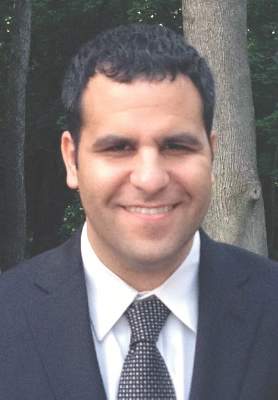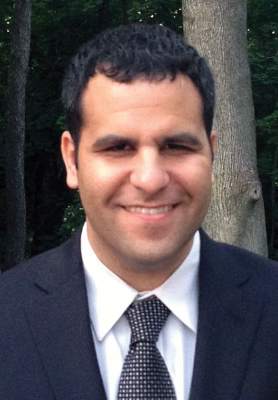User login
Four questions open dialogue, cultivate the therapeutic alliance
In today’s time-pressed practice of psychiatry, with its emphasis on the brief medication management visit, clinicians and patients alike often feel that time constraints limit their ability to forge a therapeutic alliance, thereby removing an important element in effective treatment.
Patients are generally well trained to ask questions such as how a medication works, when they can expect to feel something different, and what side effects to anticipate. Clinicians, for their part, are typically trained to discuss the pharmacology of medications, and to respond to these questions. Dialogue around these questions typifies a usual brief pharmacologic intervention.
But there are deeper questions and fears that patients may harbor but not know how to ask. These anxieties, if not explored with a trusting and empathic physician, can play a significant role in the overall efficacy of the treatment. These anxieties go further than concerns about the pharmacology of medications. Taking a medication that has the potential to alter one’s mind and personality is a daunting prospect. Some of these often-unasked questions include: “Will this change who I am? Will it take away my feelings? My spontaneity? My capacity for grief or sadness? Will I be less of a person? Will I be using this as a crutch? Will I become dependent upon this medication?” Another oft-unspoken concern: “You are giving me something to affect my mind. Do you know what you’re doing? Do you think a pill cures everything?”
If we open the door to the broader impact of taking psychotropic medications, we legitimize and validate such anxieties, and bring them into the therapeutic discussion. We also engage the power of the therapeutic alliance, believed by many to be a potent aspect of the “placebo effect,” and learn how to optimize this effect for our patient as an individual.
Patients often have had multiple experiences with other doctors and medications. We may be accustomed to asking what has been your experience with meds in the past, generally and specifically. But we are perhaps less inclined to ask, “What has been your experience with the prescribing doctors? Have you felt listened to and cared for? Have you felt that you were a partner in your treatment, or like a guinea pig? Have your concerns been heard? Do you think your relationship with your doctor can affect the outcome of your treatment? What kind of relationship works better for you?”
We recommend prescribers gain a greater sense of comfort in asking the following four questions as a start to opening a dialogue with our patients and establishing a greater alliance.
1. What does it mean for you to take a medication to treat these symptoms?
2. What are your biggest fears or anxieties related to taking this medication?
3. Do you think your relationship with your physician can affect the outcome of your treatment?
4. Would you feel comfortable telling me if something I’ve said or recommended does not sit well with you so that we can discuss it?
In addition to asking questions like the ones posed above, we must remember that our honest answers about psychotropic medication often times involves a degree of uncertainty. How often do we really know what a given patient can expect in terms of a subjective effect of a particular medication? How should we approach the uncertainty of our position? Some patients want to feel that their doctor has superior knowledge and do not want to hear our uncertainty, while other patients welcome the honesty and humanity in a collaborative approach. Personally, we are most comfortable with a collaborative partnership – together, we will observe the effects of this medication, positive and/or negative, and determine whether it is right for the patient.
At the same time, we are attuned to the idea that some patients do not prefer this approach, and want their doctor to know what is best and to believe in the “magicality” of a prescription from an all-knowing physician. By recognizing this possibility, we do not impose our preference for a collaborative partnership when it might create further anxiety in a patient. But we seek to learn more from our patients in this regard, and to accept that sometimes we are not the right fit.
Dr. Ascher is clinical assistant professor of psychiatry in the department of psychiatry at the University of Pennsylvania, Philadelphia. Dr. Baurer is medical director of the Kirkbride Center, Philadelphia, and president of the Pennsylvania Society of Addiction Medicine. He also serves on the faculty at Psychoanalytic Center of Philadelphia.
In today’s time-pressed practice of psychiatry, with its emphasis on the brief medication management visit, clinicians and patients alike often feel that time constraints limit their ability to forge a therapeutic alliance, thereby removing an important element in effective treatment.
Patients are generally well trained to ask questions such as how a medication works, when they can expect to feel something different, and what side effects to anticipate. Clinicians, for their part, are typically trained to discuss the pharmacology of medications, and to respond to these questions. Dialogue around these questions typifies a usual brief pharmacologic intervention.
But there are deeper questions and fears that patients may harbor but not know how to ask. These anxieties, if not explored with a trusting and empathic physician, can play a significant role in the overall efficacy of the treatment. These anxieties go further than concerns about the pharmacology of medications. Taking a medication that has the potential to alter one’s mind and personality is a daunting prospect. Some of these often-unasked questions include: “Will this change who I am? Will it take away my feelings? My spontaneity? My capacity for grief or sadness? Will I be less of a person? Will I be using this as a crutch? Will I become dependent upon this medication?” Another oft-unspoken concern: “You are giving me something to affect my mind. Do you know what you’re doing? Do you think a pill cures everything?”
If we open the door to the broader impact of taking psychotropic medications, we legitimize and validate such anxieties, and bring them into the therapeutic discussion. We also engage the power of the therapeutic alliance, believed by many to be a potent aspect of the “placebo effect,” and learn how to optimize this effect for our patient as an individual.
Patients often have had multiple experiences with other doctors and medications. We may be accustomed to asking what has been your experience with meds in the past, generally and specifically. But we are perhaps less inclined to ask, “What has been your experience with the prescribing doctors? Have you felt listened to and cared for? Have you felt that you were a partner in your treatment, or like a guinea pig? Have your concerns been heard? Do you think your relationship with your doctor can affect the outcome of your treatment? What kind of relationship works better for you?”
We recommend prescribers gain a greater sense of comfort in asking the following four questions as a start to opening a dialogue with our patients and establishing a greater alliance.
1. What does it mean for you to take a medication to treat these symptoms?
2. What are your biggest fears or anxieties related to taking this medication?
3. Do you think your relationship with your physician can affect the outcome of your treatment?
4. Would you feel comfortable telling me if something I’ve said or recommended does not sit well with you so that we can discuss it?
In addition to asking questions like the ones posed above, we must remember that our honest answers about psychotropic medication often times involves a degree of uncertainty. How often do we really know what a given patient can expect in terms of a subjective effect of a particular medication? How should we approach the uncertainty of our position? Some patients want to feel that their doctor has superior knowledge and do not want to hear our uncertainty, while other patients welcome the honesty and humanity in a collaborative approach. Personally, we are most comfortable with a collaborative partnership – together, we will observe the effects of this medication, positive and/or negative, and determine whether it is right for the patient.
At the same time, we are attuned to the idea that some patients do not prefer this approach, and want their doctor to know what is best and to believe in the “magicality” of a prescription from an all-knowing physician. By recognizing this possibility, we do not impose our preference for a collaborative partnership when it might create further anxiety in a patient. But we seek to learn more from our patients in this regard, and to accept that sometimes we are not the right fit.
Dr. Ascher is clinical assistant professor of psychiatry in the department of psychiatry at the University of Pennsylvania, Philadelphia. Dr. Baurer is medical director of the Kirkbride Center, Philadelphia, and president of the Pennsylvania Society of Addiction Medicine. He also serves on the faculty at Psychoanalytic Center of Philadelphia.
In today’s time-pressed practice of psychiatry, with its emphasis on the brief medication management visit, clinicians and patients alike often feel that time constraints limit their ability to forge a therapeutic alliance, thereby removing an important element in effective treatment.
Patients are generally well trained to ask questions such as how a medication works, when they can expect to feel something different, and what side effects to anticipate. Clinicians, for their part, are typically trained to discuss the pharmacology of medications, and to respond to these questions. Dialogue around these questions typifies a usual brief pharmacologic intervention.
But there are deeper questions and fears that patients may harbor but not know how to ask. These anxieties, if not explored with a trusting and empathic physician, can play a significant role in the overall efficacy of the treatment. These anxieties go further than concerns about the pharmacology of medications. Taking a medication that has the potential to alter one’s mind and personality is a daunting prospect. Some of these often-unasked questions include: “Will this change who I am? Will it take away my feelings? My spontaneity? My capacity for grief or sadness? Will I be less of a person? Will I be using this as a crutch? Will I become dependent upon this medication?” Another oft-unspoken concern: “You are giving me something to affect my mind. Do you know what you’re doing? Do you think a pill cures everything?”
If we open the door to the broader impact of taking psychotropic medications, we legitimize and validate such anxieties, and bring them into the therapeutic discussion. We also engage the power of the therapeutic alliance, believed by many to be a potent aspect of the “placebo effect,” and learn how to optimize this effect for our patient as an individual.
Patients often have had multiple experiences with other doctors and medications. We may be accustomed to asking what has been your experience with meds in the past, generally and specifically. But we are perhaps less inclined to ask, “What has been your experience with the prescribing doctors? Have you felt listened to and cared for? Have you felt that you were a partner in your treatment, or like a guinea pig? Have your concerns been heard? Do you think your relationship with your doctor can affect the outcome of your treatment? What kind of relationship works better for you?”
We recommend prescribers gain a greater sense of comfort in asking the following four questions as a start to opening a dialogue with our patients and establishing a greater alliance.
1. What does it mean for you to take a medication to treat these symptoms?
2. What are your biggest fears or anxieties related to taking this medication?
3. Do you think your relationship with your physician can affect the outcome of your treatment?
4. Would you feel comfortable telling me if something I’ve said or recommended does not sit well with you so that we can discuss it?
In addition to asking questions like the ones posed above, we must remember that our honest answers about psychotropic medication often times involves a degree of uncertainty. How often do we really know what a given patient can expect in terms of a subjective effect of a particular medication? How should we approach the uncertainty of our position? Some patients want to feel that their doctor has superior knowledge and do not want to hear our uncertainty, while other patients welcome the honesty and humanity in a collaborative approach. Personally, we are most comfortable with a collaborative partnership – together, we will observe the effects of this medication, positive and/or negative, and determine whether it is right for the patient.
At the same time, we are attuned to the idea that some patients do not prefer this approach, and want their doctor to know what is best and to believe in the “magicality” of a prescription from an all-knowing physician. By recognizing this possibility, we do not impose our preference for a collaborative partnership when it might create further anxiety in a patient. But we seek to learn more from our patients in this regard, and to accept that sometimes we are not the right fit.
Dr. Ascher is clinical assistant professor of psychiatry in the department of psychiatry at the University of Pennsylvania, Philadelphia. Dr. Baurer is medical director of the Kirkbride Center, Philadelphia, and president of the Pennsylvania Society of Addiction Medicine. He also serves on the faculty at Psychoanalytic Center of Philadelphia.
Commentary: Promoting recovery in patients completing detox programs
Christine is a 29-year-old white female with a history of alcohol use disorder, generalized anxiety disorder, and depressive disorder NOS. Christine was admitted to the hospital for detoxification following 5 days of binge drinking alone in her apartment after a breakup with her fiancé. On the third day of her detoxification, the patient felt sad, hopeless, guilty, and worthless because of her life circumstances. She denied any suicidal ideation but wasn’t sure her life could improve. She has a history of two previous detoxes and one 30-day rehab stay, but quickly relapsed within 3 weeks of discharge. Christine is ambivalent about going back to a rehab at this time.
Patients completing detoxification programs are at a crossroads and face difficult decisions about next steps in treatment. Patients can a feel myriad of emotions such as fear, sadness, relief, worry, guilt, shame, anxiety, and anger. It is critical to provide support, build trust, and optimize communication with patients in order to help them gather the strength to maintain movement in the direction of recovery.
Recovery is a process that can take on different meanings to different people, and there is no agreed-upon definition among scientists and clinicians.
Although recovery might require total abstinence from substances, many argue that this is not necessary. More broadly, recovery from a substance use disorder (SUD) can be thought of as developing mindfulness, awareness, and adaptive skills. The individual in recovery must learn to act in more reflective and less reactive ways. Recovery involves acceptance of one’s particular set of strengths and vulnerabilities while moving toward mental, emotional, physical, and spiritual balance.
Discussion with patients offers a way of being with them that can help promote positive behavioral change. During that discussion, we should:
1. Provide psychoeducation about the nature of a substance use disorder as a medical condition. The clinician should explain to the patient that a substance use disorder is not a moral defect but rather a medical condition that needs to be treated like every other chronic medical condition. A person who is suffering from diabetes who needs to be admitted to the hospital is no different from a person suffering from an SUD who has a setback and requires detox. Patients should be provided information regarding the high prevalence of co-occurring mental health conditions present in the context of an SUD such as anxiety, depression, attention-deficit/hyperactivity disorder, or trauma. When these other conditions are treated, overall treatment outcomes are improved.
2. Embrace a nonjudgmental and empathic stance. Empathy is a key component to delivering the highest level of care to patients. It is our job to have the willingness to listen and to understand patients in the fullest way possible, which on a concrete level means using active listening skills as a deliberate and meaningful part of the clinical experience. Providing information, for instance, has a much greater chance of enhancing someone’s motivation when it is specifically tied to the personal attributes and statements of the patient in front of you. Suspending judgment can serve to build the therapeutic bond and allow the clinician to connect with the part of the patient that seeks change.
3. Avoid stigmatizing language. It is key to pay attention to the words we use in our clinical practice in order to have the most effective conversations about behavioral change. Words such as enabling, denial, addict, alcoholic, and codependency should be removed from our lexicon, as they often carry negative meanings, can promote discord between clinician and patient, and can be more confusing than clarifying. If the patient uses these words, then it can be helpful to ask the patient to clarify and explore the meaning of the word to him or her so the underpinnings and individualized meaning for this patient can be understood and explored.
4. Explore ambivalence. Show patients that we understand their perspective and acknowledge the difficulty and various emotions elicited with the dilemma of change. Ambivalence is normal, and one of the key dilemmas we all face when considering health behavior change. The value of acknowledging the function of the substance use for the patient can both help the patient feel heard and understood but also identify an important area in need of change so that the particular function can be replaced with healthier behaviors.
5. Lend hope and optimism to patients. Patients completing detox may feel that there is no hope in getting to a better place. Clinicians should emphasize the importance of patients not judging themselves too harshly. Instead, patients should focus on self-care and minimizing negative self-talk that fuels negative feelings and emotions. Reassure patients by explaining that dysphoria and anxiety can be attributed to protracted withdrawal lasting weeks to months, and that their feelings are normal given the current situation. It also can be affirming and fuel optimism to acknowledge the important and courageous first step taken by engaging in the detoxification process itself, with as much specificity to their current situation as possible.
6. Find the strengths in our patients, and use affirmations judiciously.
Affirmations should only be offered when sincere, genuine, and specific. Eliciting strengths from patients may serve to build the therapeutic bond and help patients have a more accurate self-image. Affirmations must be individualized, and can be verbal or nonverbal. While some appreciate enthusiasm, others may appreciate more subtle acknowledgments.
Dr. Ascher serves as a clinical associate in psychiatry at the University of Pennsylvania, Philadelphia. He is coeditor of “The Behavioral Addictions” (Washington: American Psychiatric Publishing, 2015). Dr. Kosanke is the director of family services at the Center for Motivation and Change in New York City and a coauthor of “Beyond Addiction: How Science and Kindness Help People Change” (New York: Scribner, 2014).
Christine is a 29-year-old white female with a history of alcohol use disorder, generalized anxiety disorder, and depressive disorder NOS. Christine was admitted to the hospital for detoxification following 5 days of binge drinking alone in her apartment after a breakup with her fiancé. On the third day of her detoxification, the patient felt sad, hopeless, guilty, and worthless because of her life circumstances. She denied any suicidal ideation but wasn’t sure her life could improve. She has a history of two previous detoxes and one 30-day rehab stay, but quickly relapsed within 3 weeks of discharge. Christine is ambivalent about going back to a rehab at this time.
Patients completing detoxification programs are at a crossroads and face difficult decisions about next steps in treatment. Patients can a feel myriad of emotions such as fear, sadness, relief, worry, guilt, shame, anxiety, and anger. It is critical to provide support, build trust, and optimize communication with patients in order to help them gather the strength to maintain movement in the direction of recovery.
Recovery is a process that can take on different meanings to different people, and there is no agreed-upon definition among scientists and clinicians.
Although recovery might require total abstinence from substances, many argue that this is not necessary. More broadly, recovery from a substance use disorder (SUD) can be thought of as developing mindfulness, awareness, and adaptive skills. The individual in recovery must learn to act in more reflective and less reactive ways. Recovery involves acceptance of one’s particular set of strengths and vulnerabilities while moving toward mental, emotional, physical, and spiritual balance.
Discussion with patients offers a way of being with them that can help promote positive behavioral change. During that discussion, we should:
1. Provide psychoeducation about the nature of a substance use disorder as a medical condition. The clinician should explain to the patient that a substance use disorder is not a moral defect but rather a medical condition that needs to be treated like every other chronic medical condition. A person who is suffering from diabetes who needs to be admitted to the hospital is no different from a person suffering from an SUD who has a setback and requires detox. Patients should be provided information regarding the high prevalence of co-occurring mental health conditions present in the context of an SUD such as anxiety, depression, attention-deficit/hyperactivity disorder, or trauma. When these other conditions are treated, overall treatment outcomes are improved.
2. Embrace a nonjudgmental and empathic stance. Empathy is a key component to delivering the highest level of care to patients. It is our job to have the willingness to listen and to understand patients in the fullest way possible, which on a concrete level means using active listening skills as a deliberate and meaningful part of the clinical experience. Providing information, for instance, has a much greater chance of enhancing someone’s motivation when it is specifically tied to the personal attributes and statements of the patient in front of you. Suspending judgment can serve to build the therapeutic bond and allow the clinician to connect with the part of the patient that seeks change.
3. Avoid stigmatizing language. It is key to pay attention to the words we use in our clinical practice in order to have the most effective conversations about behavioral change. Words such as enabling, denial, addict, alcoholic, and codependency should be removed from our lexicon, as they often carry negative meanings, can promote discord between clinician and patient, and can be more confusing than clarifying. If the patient uses these words, then it can be helpful to ask the patient to clarify and explore the meaning of the word to him or her so the underpinnings and individualized meaning for this patient can be understood and explored.
4. Explore ambivalence. Show patients that we understand their perspective and acknowledge the difficulty and various emotions elicited with the dilemma of change. Ambivalence is normal, and one of the key dilemmas we all face when considering health behavior change. The value of acknowledging the function of the substance use for the patient can both help the patient feel heard and understood but also identify an important area in need of change so that the particular function can be replaced with healthier behaviors.
5. Lend hope and optimism to patients. Patients completing detox may feel that there is no hope in getting to a better place. Clinicians should emphasize the importance of patients not judging themselves too harshly. Instead, patients should focus on self-care and minimizing negative self-talk that fuels negative feelings and emotions. Reassure patients by explaining that dysphoria and anxiety can be attributed to protracted withdrawal lasting weeks to months, and that their feelings are normal given the current situation. It also can be affirming and fuel optimism to acknowledge the important and courageous first step taken by engaging in the detoxification process itself, with as much specificity to their current situation as possible.
6. Find the strengths in our patients, and use affirmations judiciously.
Affirmations should only be offered when sincere, genuine, and specific. Eliciting strengths from patients may serve to build the therapeutic bond and help patients have a more accurate self-image. Affirmations must be individualized, and can be verbal or nonverbal. While some appreciate enthusiasm, others may appreciate more subtle acknowledgments.
Dr. Ascher serves as a clinical associate in psychiatry at the University of Pennsylvania, Philadelphia. He is coeditor of “The Behavioral Addictions” (Washington: American Psychiatric Publishing, 2015). Dr. Kosanke is the director of family services at the Center for Motivation and Change in New York City and a coauthor of “Beyond Addiction: How Science and Kindness Help People Change” (New York: Scribner, 2014).
Christine is a 29-year-old white female with a history of alcohol use disorder, generalized anxiety disorder, and depressive disorder NOS. Christine was admitted to the hospital for detoxification following 5 days of binge drinking alone in her apartment after a breakup with her fiancé. On the third day of her detoxification, the patient felt sad, hopeless, guilty, and worthless because of her life circumstances. She denied any suicidal ideation but wasn’t sure her life could improve. She has a history of two previous detoxes and one 30-day rehab stay, but quickly relapsed within 3 weeks of discharge. Christine is ambivalent about going back to a rehab at this time.
Patients completing detoxification programs are at a crossroads and face difficult decisions about next steps in treatment. Patients can a feel myriad of emotions such as fear, sadness, relief, worry, guilt, shame, anxiety, and anger. It is critical to provide support, build trust, and optimize communication with patients in order to help them gather the strength to maintain movement in the direction of recovery.
Recovery is a process that can take on different meanings to different people, and there is no agreed-upon definition among scientists and clinicians.
Although recovery might require total abstinence from substances, many argue that this is not necessary. More broadly, recovery from a substance use disorder (SUD) can be thought of as developing mindfulness, awareness, and adaptive skills. The individual in recovery must learn to act in more reflective and less reactive ways. Recovery involves acceptance of one’s particular set of strengths and vulnerabilities while moving toward mental, emotional, physical, and spiritual balance.
Discussion with patients offers a way of being with them that can help promote positive behavioral change. During that discussion, we should:
1. Provide psychoeducation about the nature of a substance use disorder as a medical condition. The clinician should explain to the patient that a substance use disorder is not a moral defect but rather a medical condition that needs to be treated like every other chronic medical condition. A person who is suffering from diabetes who needs to be admitted to the hospital is no different from a person suffering from an SUD who has a setback and requires detox. Patients should be provided information regarding the high prevalence of co-occurring mental health conditions present in the context of an SUD such as anxiety, depression, attention-deficit/hyperactivity disorder, or trauma. When these other conditions are treated, overall treatment outcomes are improved.
2. Embrace a nonjudgmental and empathic stance. Empathy is a key component to delivering the highest level of care to patients. It is our job to have the willingness to listen and to understand patients in the fullest way possible, which on a concrete level means using active listening skills as a deliberate and meaningful part of the clinical experience. Providing information, for instance, has a much greater chance of enhancing someone’s motivation when it is specifically tied to the personal attributes and statements of the patient in front of you. Suspending judgment can serve to build the therapeutic bond and allow the clinician to connect with the part of the patient that seeks change.
3. Avoid stigmatizing language. It is key to pay attention to the words we use in our clinical practice in order to have the most effective conversations about behavioral change. Words such as enabling, denial, addict, alcoholic, and codependency should be removed from our lexicon, as they often carry negative meanings, can promote discord between clinician and patient, and can be more confusing than clarifying. If the patient uses these words, then it can be helpful to ask the patient to clarify and explore the meaning of the word to him or her so the underpinnings and individualized meaning for this patient can be understood and explored.
4. Explore ambivalence. Show patients that we understand their perspective and acknowledge the difficulty and various emotions elicited with the dilemma of change. Ambivalence is normal, and one of the key dilemmas we all face when considering health behavior change. The value of acknowledging the function of the substance use for the patient can both help the patient feel heard and understood but also identify an important area in need of change so that the particular function can be replaced with healthier behaviors.
5. Lend hope and optimism to patients. Patients completing detox may feel that there is no hope in getting to a better place. Clinicians should emphasize the importance of patients not judging themselves too harshly. Instead, patients should focus on self-care and minimizing negative self-talk that fuels negative feelings and emotions. Reassure patients by explaining that dysphoria and anxiety can be attributed to protracted withdrawal lasting weeks to months, and that their feelings are normal given the current situation. It also can be affirming and fuel optimism to acknowledge the important and courageous first step taken by engaging in the detoxification process itself, with as much specificity to their current situation as possible.
6. Find the strengths in our patients, and use affirmations judiciously.
Affirmations should only be offered when sincere, genuine, and specific. Eliciting strengths from patients may serve to build the therapeutic bond and help patients have a more accurate self-image. Affirmations must be individualized, and can be verbal or nonverbal. While some appreciate enthusiasm, others may appreciate more subtle acknowledgments.
Dr. Ascher serves as a clinical associate in psychiatry at the University of Pennsylvania, Philadelphia. He is coeditor of “The Behavioral Addictions” (Washington: American Psychiatric Publishing, 2015). Dr. Kosanke is the director of family services at the Center for Motivation and Change in New York City and a coauthor of “Beyond Addiction: How Science and Kindness Help People Change” (New York: Scribner, 2014).





